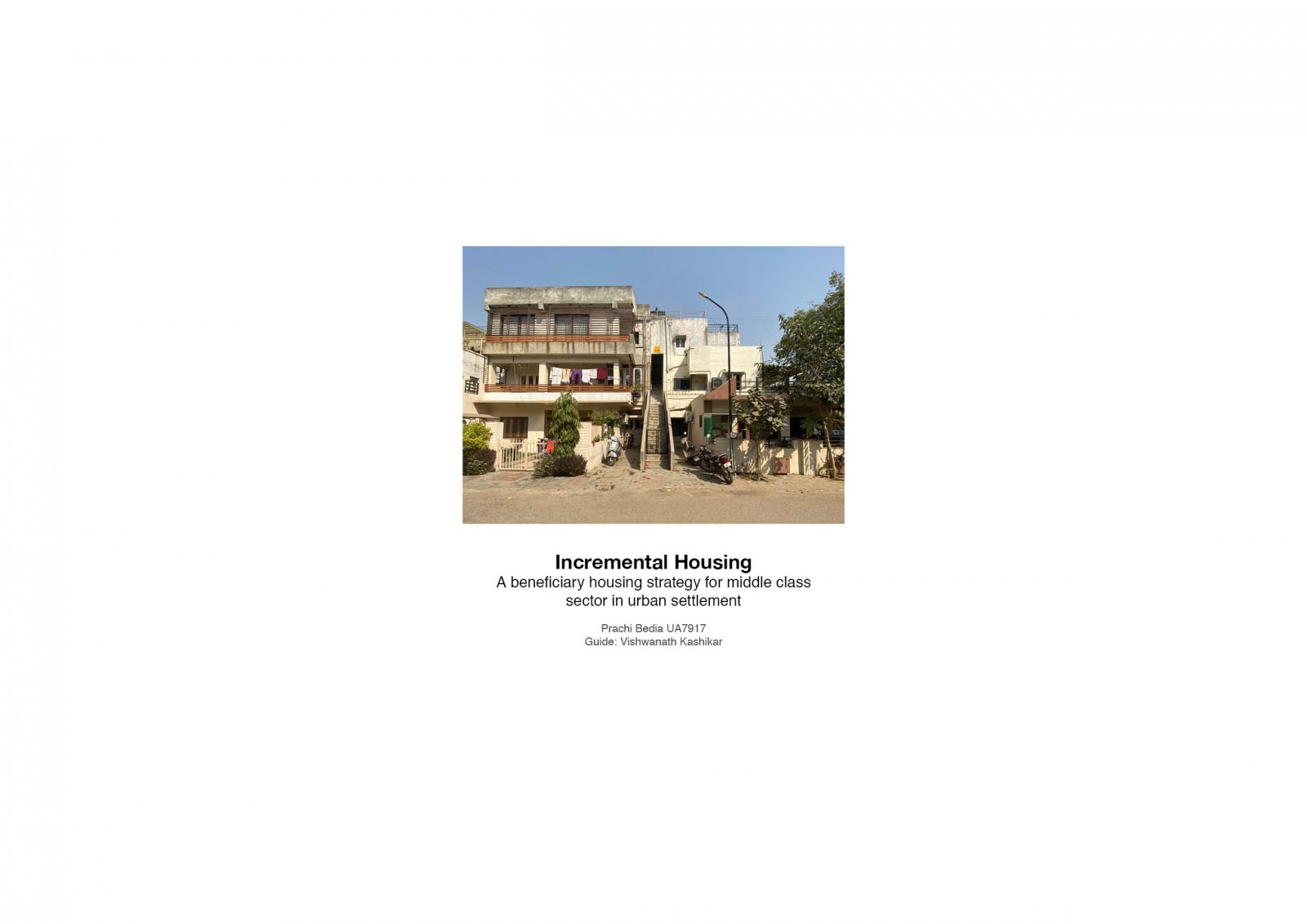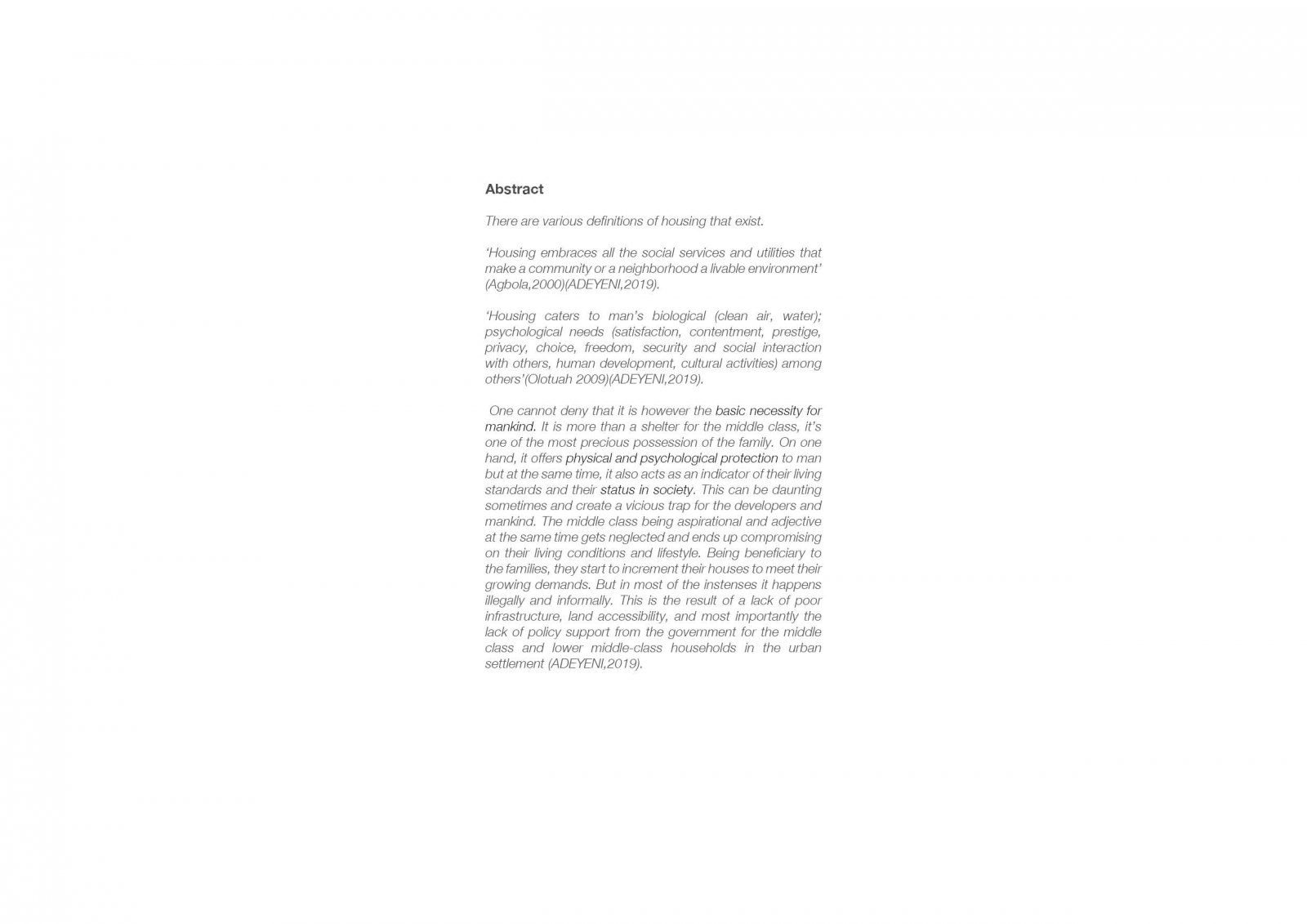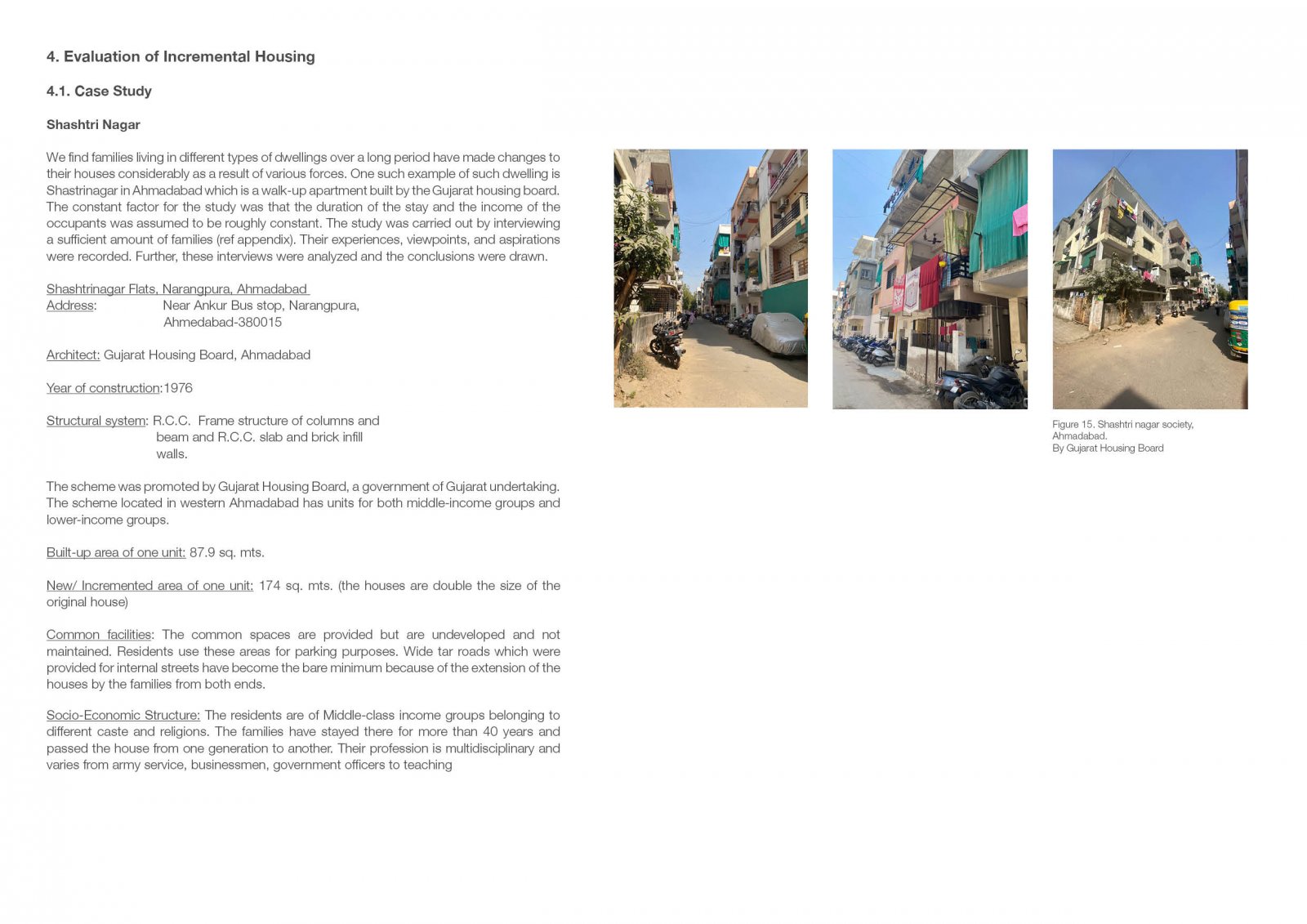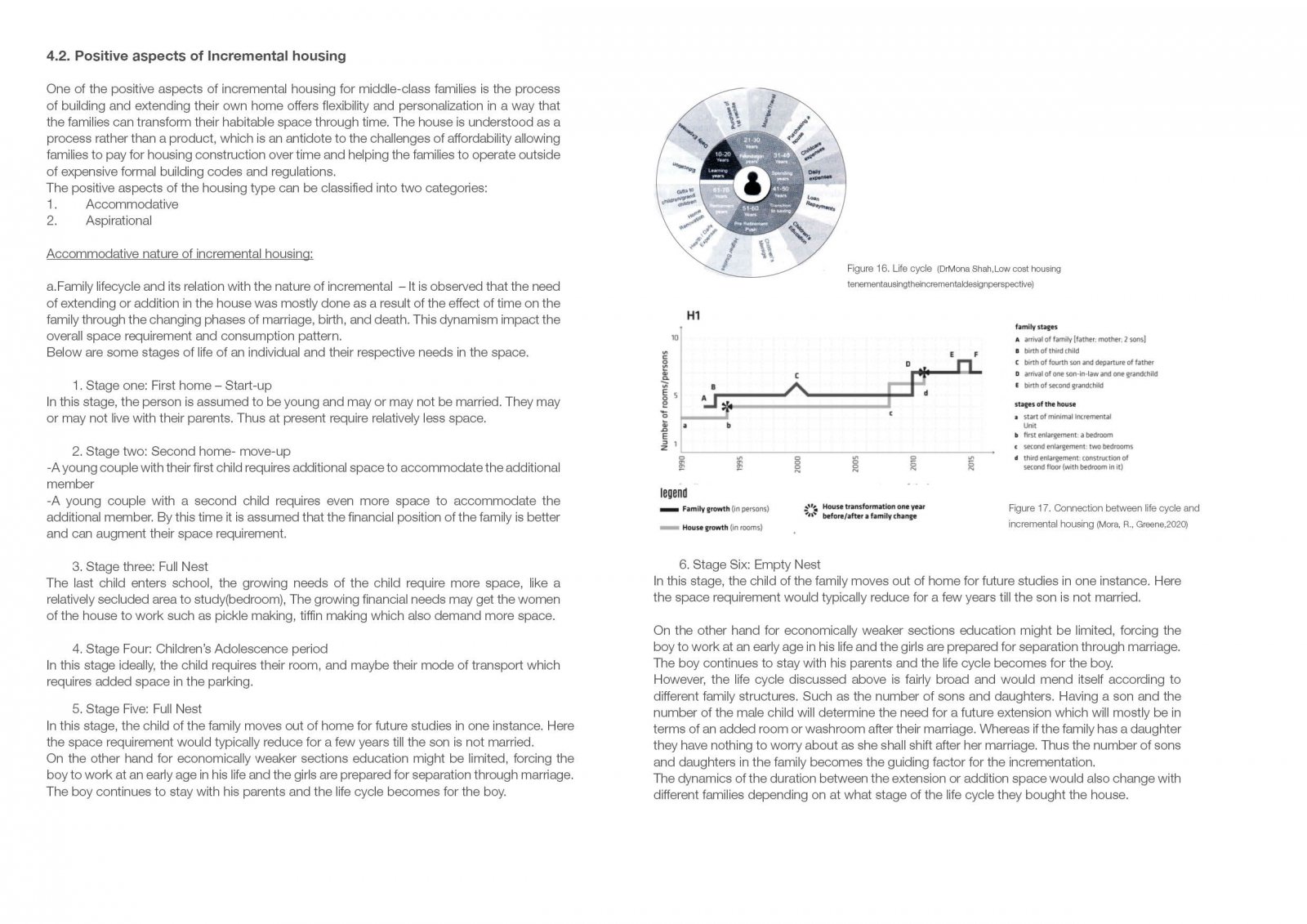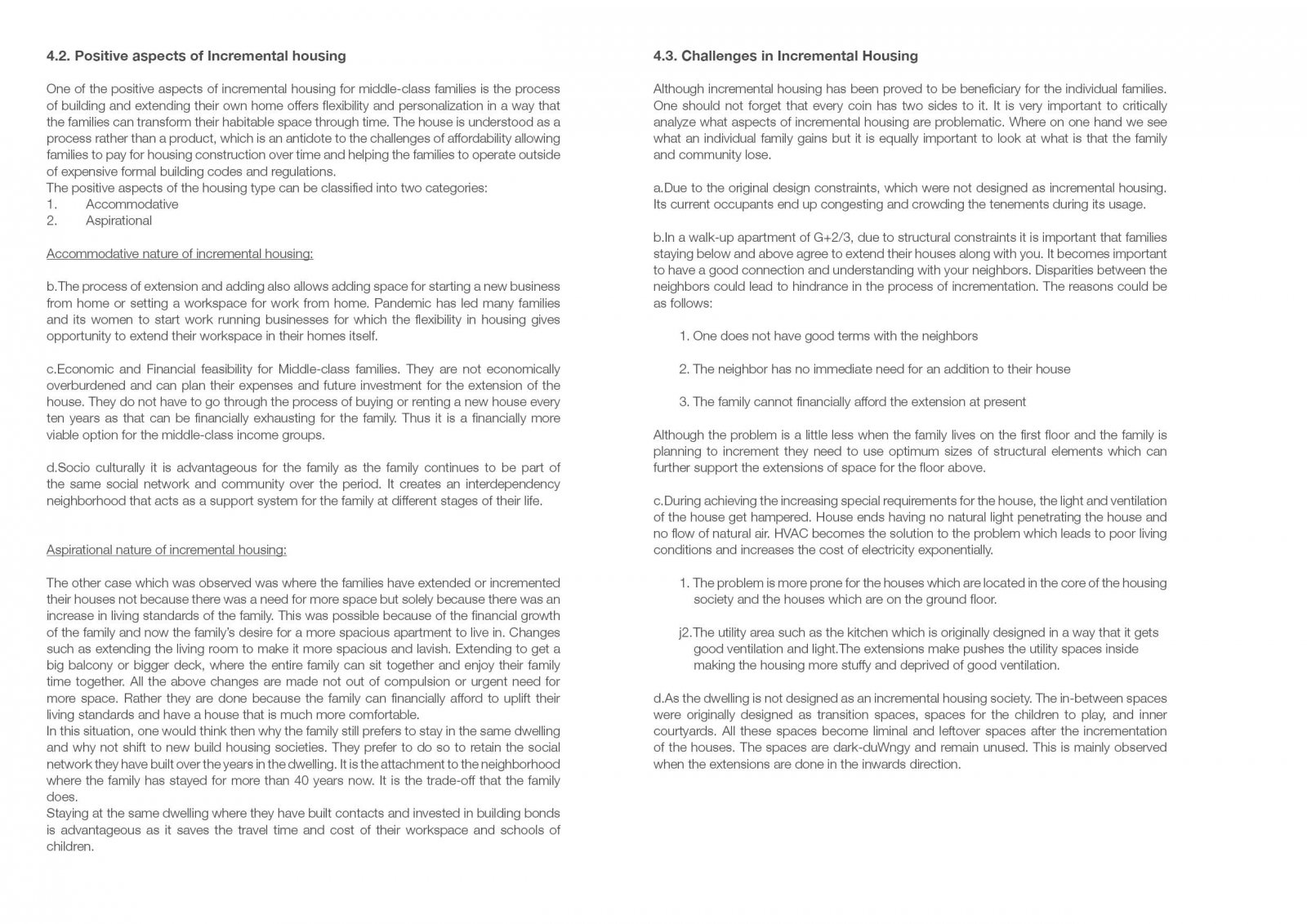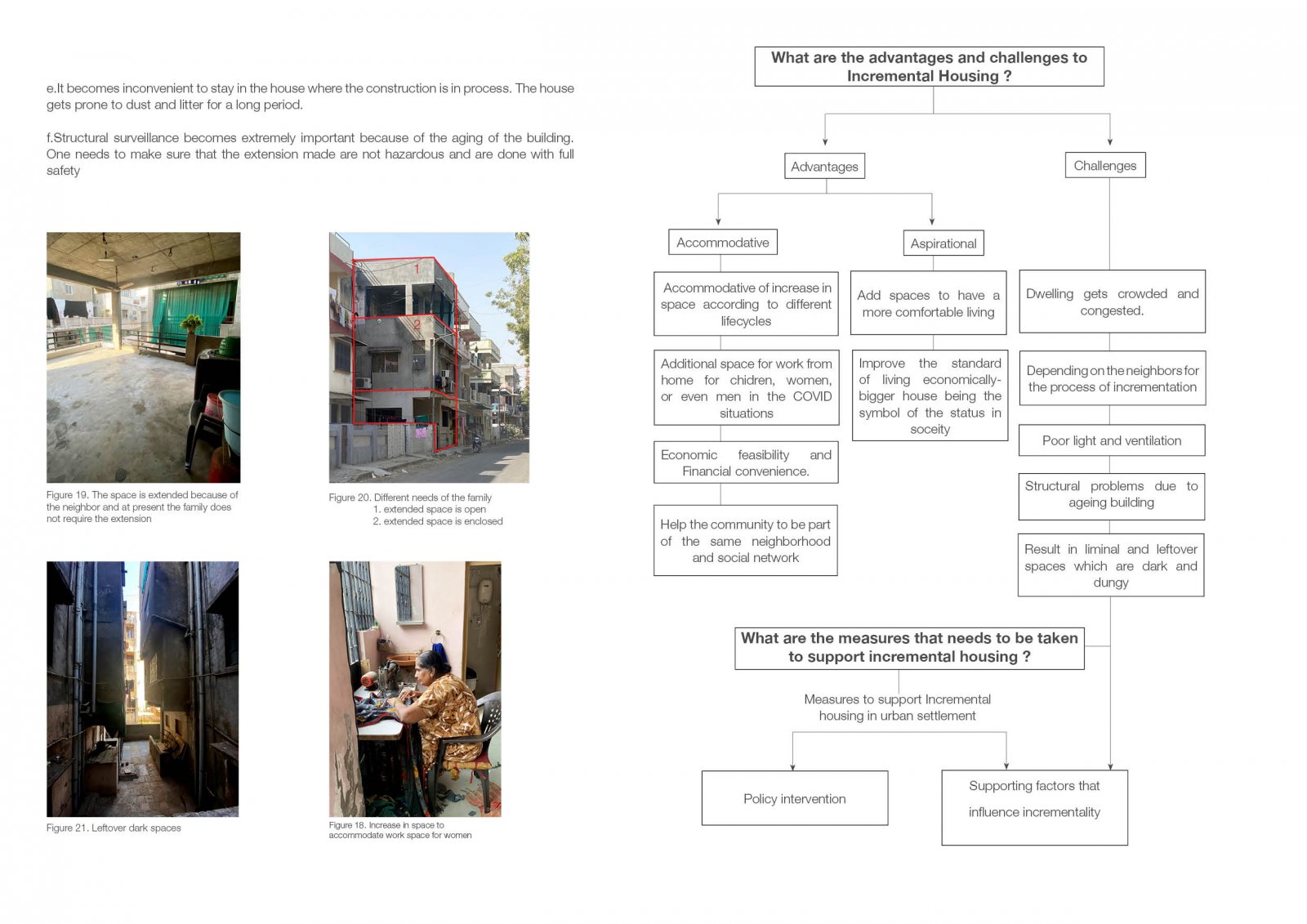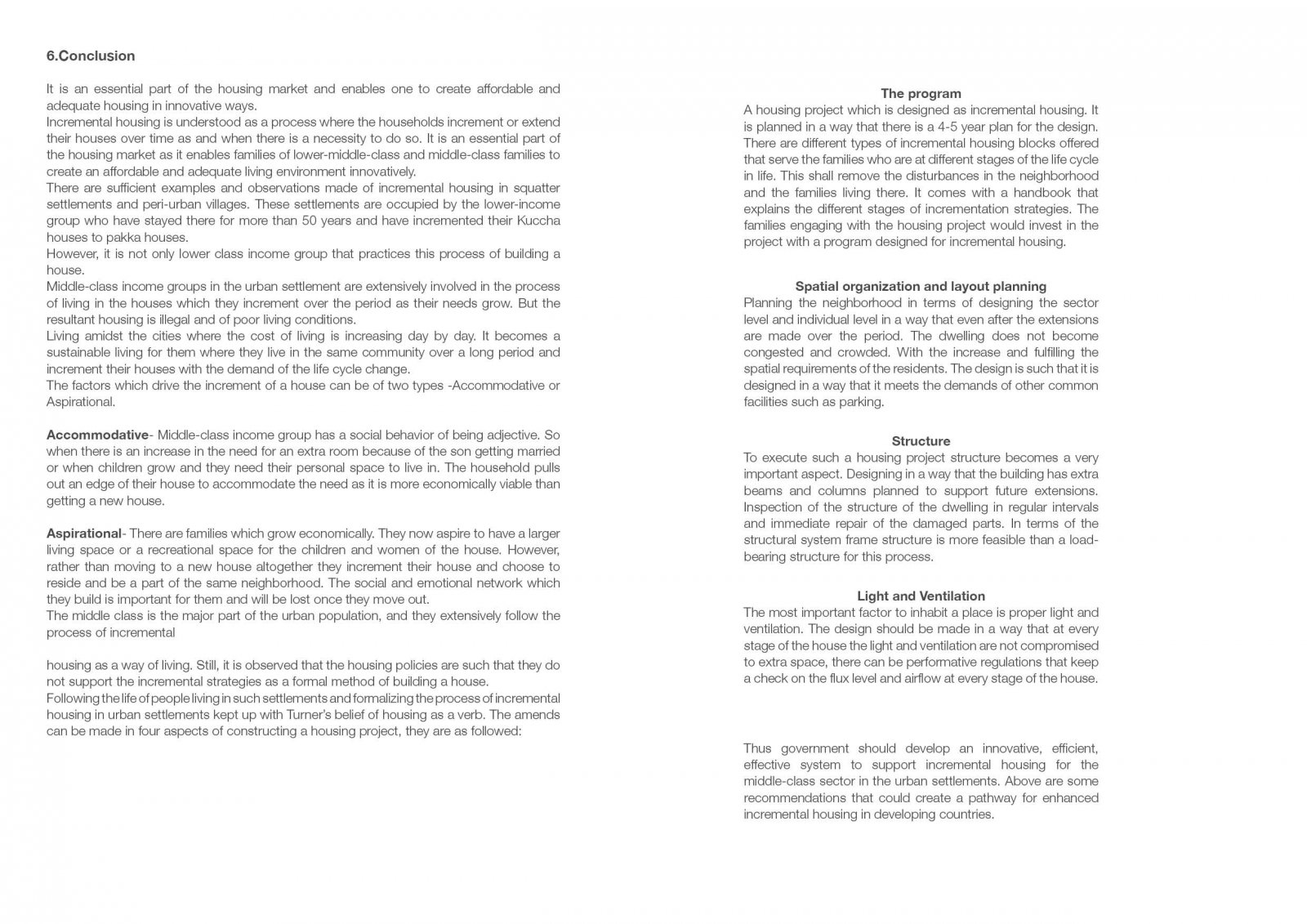Your browser is out-of-date!
For a richer surfing experience on our website, please update your browser. Update my browser now!
For a richer surfing experience on our website, please update your browser. Update my browser now!
There are various definitions of housing that exist. ‘Housing embraces all the social services and utilities that make a community or a neighborhood a livable environment’ (Agbola,2000)(ADEYENI,2019). ‘Housing caters to man’s biological (clean air, water); psychological needs (satisfaction, contentment, prestige, privacy, choice, freedom, security and social interaction with others, human development, cultural activities) among others’(Olotuah 2009)(ADEYENI,2019). One cannot deny that it is however the basic necessity for mankind. It is more than a shelter for the middle class, it’s one of the most precious possession of the family. On one hand, it offers physical and psychological protection to men but at the same time, it also acts as an indicator of their living standards and their status in society. This can be daunting sometimes and create a vicious trap for the developers and mankind. At the same time, the middle class being aspiration and adjective gets neglected and ends up compromising their living conditions and lifestyle. Being beneficiary to the families, they start to increment their houses to meet their growing demands. But in most instances, it happens illegally and informally. This results from a lack of poor infrastructure, land accessibility, and most importantly, the government's lack of policy support from the government for the middle class and lower middle-class households in the urban settlement (ADEYENI,2019).
